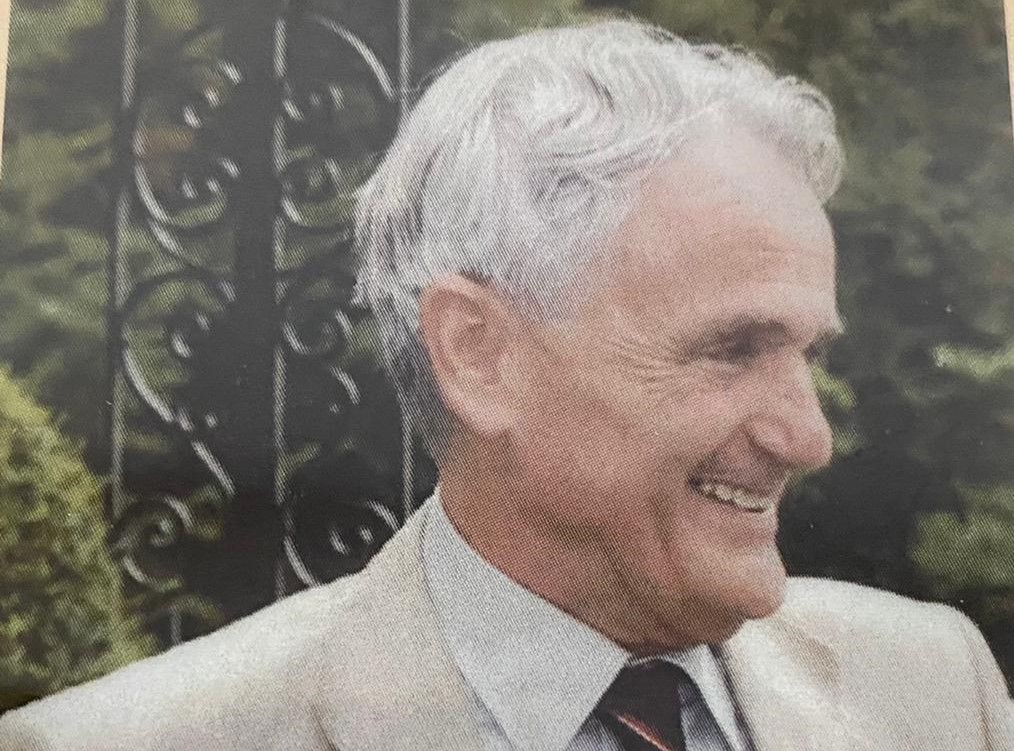In Memoriam: Maurizio Gualtieri, 1941-2025
23 April 2025

The University of Alberta fondly remembers Maurizio Gualtieri, Emeritus Professor in the Department of History and Classics, who died on April 7, aged 83. Professor Gualtieri was a distinguished archaeologist of the Roman and pre-Roman world who inspired hundreds of University of Alberta students in the field schools he led in Italy, and was instrumental in founding the University of Alberta’s School in Cortona with his wife, Professor Helena Fracchia.
Maurizio had an extraordinary life, with a career that spanned continents and academic disciplines. Growing up in Naples, he first studied Economy and Commerce at the Federico II University in Naples before becoming a Fulbright Scholar in theoretical economics at the University of Pennsylvania. Following that, he returned to Italy where he worked for the oil conglomerate ENI. This work took him to boardrooms and embassies in Europe and the Middle East during a time when oil deals were reshaping middle eastern politics. He worked with the oil minister of the Shah of Iran, and worked with the British Embassy on oil contracts with the Soviet Union.
While he was very successful in this work, it was not a world in which he wanted to remain. He chose instead to follow his intellectual passion for classical archaeology. He already had some experience in this field. While he studied in Naples, he often served as a translator for archaeology professors in Pompei and Herculaneum when they led foreign student groups. His fluency in English (as well as French, in addition to his native Italian) was due to his father’s insistence that all his children, from an early age, become fluent in these languages. He returned to the United States and to the University of Pennsylvania, this time for a doctorate in Classical Archaeology.
Following this, he started working first with the Naples Centre Jean Berard, a satellite of the French School in Rome, and with Professor Juliette de la Geniere of Lille University, on the site of Amendolara in Calabria, and then for the Archaeological Superintendency of Salerno at Roccagloriosa.
In 1979, Maurizio moved back to North America to join the University of Alberta, first as a sessional instructor, and later as permanent faculty in the Department of History and Classics. It was here that he met his wife, Helena Fracchia, when they were both teaching sections of a course on the Roman world. Maurizio had just arrived from Italy, Helena from Greece. They started discussing their teaching of sections of a course on the Roman world and the conversation never stopped. It was love at first sight, and the beginning of a life-long love and intellectual partnership. They were married in 1980.
In 1981 at the suggestion of their colleague Prof. Alastair Small, Maurizio and Helena became instructors at a University of Alberta field school, first at Roccagloriosa in Campania where Maurizio had been working since 1978 and later at Oppido Lucano in Basilicata. Between about 300-400 University of Alberta students had the opportunity to dig alongside Maurizio and Helena. Maurizio became an Associate Professor of Archaeology at the University of Perugia and thus started a fruitful collaboration between the University of Alberta and the University of Perugia.
In 1991, the University of Perugia and the town of Cortona were interested in a foreign collaboration with an archeological team to excavate the nearby Roman villa site at Ossaia. This opened the opportunity for Professor Fracchia to lead a University of Alberta team. The field school, where Maurizio and Helena taught hundreds of students, was the precursor of today’s University of Alberta School in Cortona.
As an archaeologist, Maurizio pursued his lifetime intellectual interest in economic development in rural Italy, focusing on settlement archaeology in rural areas, both pre-Roman and Roman. He was an intuitive and astute archaeologist, and an excellent teacher. He loved his students and his students shared a deep affection for Helena and Maurizio.
Those who knew Maurizio speak of his great kindness, his diplomacy and a smile that could break stone. He was immensely respected, and beloved by the students who were fortunate enough to be taught by him.
He was a champion fencer, ice skater and gymnast. Students who came over to their house during their time at the field school were sometimes greeted by the sight of Maurizio walking around the house on his hands, feet in the air, graceful as a butterfly.
He passed away peacefully on April 7 following an illness.
Maurizio and Helena were passionate champions of transformative international learning. Their commitment to the Archaeological Field School and then to the Cortona School and to students experiencing the world through education has left a lasting legacy. A gift in Maurizio’s name to the School will continue that legacy by helping future students benefit from the same life-changing opportunities.